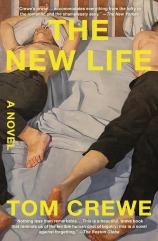Reading Group Guide
Discussion Questions
The New Life

1. On page 85, the reader learns of Henry’s “peculiarity” and the shame he’s felt about it for his entire life. This “peculiarity” allows him to sympathize with “inverts” and their oppression. Discuss how narrow the definition for “normal” really is. How many people fall outside of that category? How have the confines for normal broadened or narrowed since Henry and John’s day?
2. A recurring fear of both John and Henry is that John’s “inversion” will be discovered, discrediting their book. Why is it that we don’t trust the subjects of debate to have a credible perspective? What are some examples of conversations where the people most affected by the decision are left out of the process?
3. At the beginning of chapter 11, John recalls the events leading up to his marriage to Catherine, the dread he felt, his inability to focus, his casual cruelty because he did not love her. He recalls rushing into the marriage even though he knew it was wrong. Discuss a time you were torn between instinct and reason when making a decision. How often were your instincts right?
4. On page 126, in the midst of a heated conversation about sexual freedom and contraceptives, Angelica says, “If sex is considered a pleasure, why would you not make it safe from consequences in every kind of case?” What role does moral posturing play in maintaining the status quo? How does it contribute to restricting bodily autonomy?
5. In the same conversation, and later on page 152, the meaning and limits of liberty are raised again. Angelica claims that “liberty can be abused.” How is “liberty” being defined here? Does that definition allow for individual self-determination? How is “liberty” constrained when someone other than the individual gets to decide when they are “abusing” it? How do responsibility and liberation compete with or complement each other?
6. In a letter to Henry on page 141, John defends the omission of female inverts from their book due to the lack of legal penalty. However, lesbianism was socially taboo, and women who attempted to marry one another with one presenting as a man were charged with fraud. Considering that Edith and Angelica were by no means free to be together despite it not being explicitly illegal, how does this illustrate the limits of legality as a means of liberation?
7. Consider the ripple-effects of the prohibitive laws against “inversion.” John’s wife, Catherine, is deeply wounded by the limits placed on his choices --- and by his resulting actions --- and is not free herself to seek other companionship. Discuss the ways in which this reflects Franny Lou Hamer’s quote “Nobody’s free until everybody’s free.”
8. Consider the line “We must live in the future we hope to make.” What does this mean to you? How do you or how would you incorporate this into your own life? What future do you hope to make?
9. On page 245, John says, “I said to Ellis today that there are blameless lives, that Wilde had dragged us all down with him. It isn’t true. I don’t think any of us are blameless --- we haven’t been allowed to be.” Explore the concept of innocence as a requirement for justice or equality. Why is it that John feels that in order to be protected, he and other inverts need to be completely “blameless”? How does the concept of “innocence” play into who is granted justice?
10. Jack confronts Henry after discovering that he is continuing with the plan to publish the book, afraid of what it will mean for him. On page 256 he says, “Does it ever occur to you that the New Life might be easier for some people to live than for others?... The gap is wider if you are in defiance of the law, than if you simply choose to live apart from your wife.” Discuss other instances in the book where it is clear that the “New Life” only offers liberation for some. How could the “New Life” become accessible to all?
The New Life
- Publication Date: January 16, 2024
- Genres: Fiction, Historical Fiction
- Paperback: 416 pages
- Publisher: Scribner
- ISBN-10: 1668000849
- ISBN-13: 9781668000847







